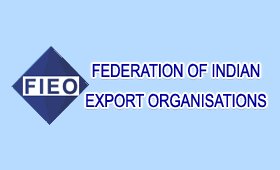|

|
Forthcoming vote on account - FIEO wishlist
|
|

|
|
| Top Stories |
 |
|
|
|
Interim Budget Special | 12 Feb, 2009
In view of the global economic meltdown which has effected the Indian export sector as well, FIEO President A Sakthivel look for the following steps from the Government out of the forthcoming Vote on Account which may provide the much needed support to make the Indian export sector competitive and sustainable.
Increase in Drawback and DEPB rate:
China has increased export VAT five times in last four months covering 3900 products including textiles, leather, light engineering products etc. China has increased rates by 5-7% whereas we reduced it by 2-3% in September 2008. In order to mitigate the problem, the government should at-least enhance the Drawback/DEPB rates by 3 to 5 percentage points across all sectors
Exemption from Fringe Benefit Tax:
Fringe Benefit Tax (FBT) is ,in fact, a tax on marketing which discourages exporters for aggressively market in new and untapped markets which is need of the hour. The net effect of FBT together with service tax on foreign travel works out to be substantial. Government should exempt exporters from FBT.
Retrospective effect to service tax notification:
Service tax authorities have issued notification in December increasing the amount of commission eligible for refund of service tax from 2% to 10% of FOB value and permitting exports made under Drawback for getting refund of output service tax. However, these changes have not been made with retrospective effect which has resulted in rejecting cases of such exporters. These two modification made be introduced with retrospective effect. More over, the service tax refund should be allowed to exporters from the date the same was notified in the Foreign Trade Policy.
Subvention Scheme:
Interest rate Subvention Scheme should be extended till 31st December, 2009 and should be de-linked with PLR and export credit should be provided at 7% straightway for all exports sectors.
Income Tax (IT) Exemption on Export Profits based on Net Foreign Exchange:
Exporters are working on wafer thin margins and taxation of the profit leaves exporters with no money for modernization and expansion of manufacturing. IT exemption will also provide some liquidity to the sector and will add to their competitiveness as they are loosing many orders by thin margins. This relief should be provided on Net Foreign Exchange ( NFE) basis so as to benefit the traditional sectors of exports more.
Investment allowance for export sector:
All exporting units may be given 200% deduction on investment made in plant and machinery for expansion and modernization of manufacturing facilities. Countries like China have provided tax deduction on any investment made in fixed assets
Creation of an "Export Development Fund (EDF)" for providing marketing exposure to MSME exporters:
SMEs are provided marketing support by most of developing and developed countries. However the support given under Marketing Development Assistance scheme of Department of Commerce with total allocation of less than Rs 100 crore for promoting exports of US $ 200 Billion is just a drop in ocean. EDF should have a corpus of 0.5% of preceding year exports.
Moratorium on Term Loans:
Government should provide moratorium on term loan to exporters for a period of 2 years as they are facing toughest competition of the century and road ahead is more challenging. Same should also be extended to Textile Upgradation Fund (TUF).
Settlement of losses in Derivatives:
Many exporters have lost substantially in derivative products offered by financial institutions at a time when exporters hedged their risk in the wake of appreciation of Rupee. The loss by SMEs itself is over Rs 2000 crore. The derivative products as a whole were miss sold by banks to all SME sector by misusing the adverse situations and ignorance of the customers.
Banks also violated all the stipulated norms and procedures of RBI's guidelines & rules. The Banks have to be instructed to solve this issue on "no-profit-no-loss" basis. Wherein the clients would be made to pay back whatever profit accrued by them through this derivative product and further the banks should not claim any loss out of it. This could be made valid for those contracts got entered between April 2007 & June 2008.
|
|
|
| |
|
|
|
|
|
|
|
|
|
|
|
|
|
|
| |
| Customs Exchange Rates |
| Currency |
Import |
Export |
US Dollar
|
₹91.35
|
89.65 |
UK Pound
|
₹125.3
|
₹121.3 |
Euro
|
₹108.5
|
₹104.85 |
| Japanese
Yen |
₹58.65 |
₹56.8 |
| As on 19 Feb, 2026 |
|
|
| Daily Poll |
 |
 |
| What is your primary "Make or Break" expectation from the Finance Minister this year? |
|
|
|
|
|
| Commented Stories |
 |
|
|
|
|
|
| |
|